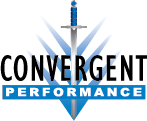This is the fourth in a series of posts that will provide, throughout the year, an improvement strategy that will cover the entire family of 9 Automation AirmanshipÒ principles. Last month we examined how we can use Breifings to connect a plan to the desired outcome. This month, looking back on that last flight leg or trip, we offer a short tutorial on Debriefing—the one principle that allows us to improve beyond normal progress and experience to get better faster, driving down the likelihood of future errors while increasing our own expert knowledge..
Almost nothing impacts performance like focused, sustained practice with expert coaching, followed up with critical feedback of what was done well during a practice session or performance, and what needs more work. There is no lack of rigorous, credible science that has proven this in hundreds of different ways. So it’s safe to say that if you’re interested at all in having your performance ranked with the best in your business, you need a working strategy for debriefing your own performance. And for that strategy to work, it needs to be applied every time you practice or perform, no matter what field of specialty you practice.
Applying this to contemporary airmanship in a rapidly evolving contemporary airspace isn’t hard—in fact, it’s never been easier. You can begin by simply applying this list of questions to every post-flight:
- What could I/we have done today that would have made this a mistake-free flight?
- Are any of the errors or mistakes made on this flight “repeat discrepancies” from a previous flight?
- Which of these strategies can I apply to eliminate the same errors or mistakes on future flights:
- More practice of the maneuver or procedure?
- Feedback or coaching from another expert, instructor or check airman?
- More study of technical, procedural or regulatory resources?
- More or better planning or briefing?
- What maneuvers, procedures, and decisions did I/we make today that led to error-free (or near error-free) outcomes? Why?
There is no shortage of commentary or expert opinion on the power of a rigorous debriefing on personal improvement. One of my favorite quotes on the subject also suggests that this must be done with distraction-free focus immediately following a practice session or a live performance (which means it’s an integral, non-optional, part of the flight itself):
“[Experts]… concentrate actively on those moves they have yet to perfect, on correcting what’s not working in their game, and on refining their mental models of how to play the game, or focusing on the particulars of feedback from a seasoned coach. Those at the top never stop learning: if at any point they start coasting and stop such smart practice, too much of their game becomes bottom-up and their skills plateau.”*
You can cut-and-paste the above list into any format you want and keep it within reach to apply with yourself or your crew on every flight leg you operate. You can customize it for yourself and your operation, and you can pass it along to others who you know would value it. But unless you’re willing to remain at the performance plateau you are at today (even if you judge it to be pretty high already), you’ve got to make Debriefing part of every practice session and operational flight.
Think about it.
Until our next post, fly safe, and always, fly first.
* From “Focus: the Hidden Driver of Excellence” (Harper Collins) by Daniel Goleman, 2013.
